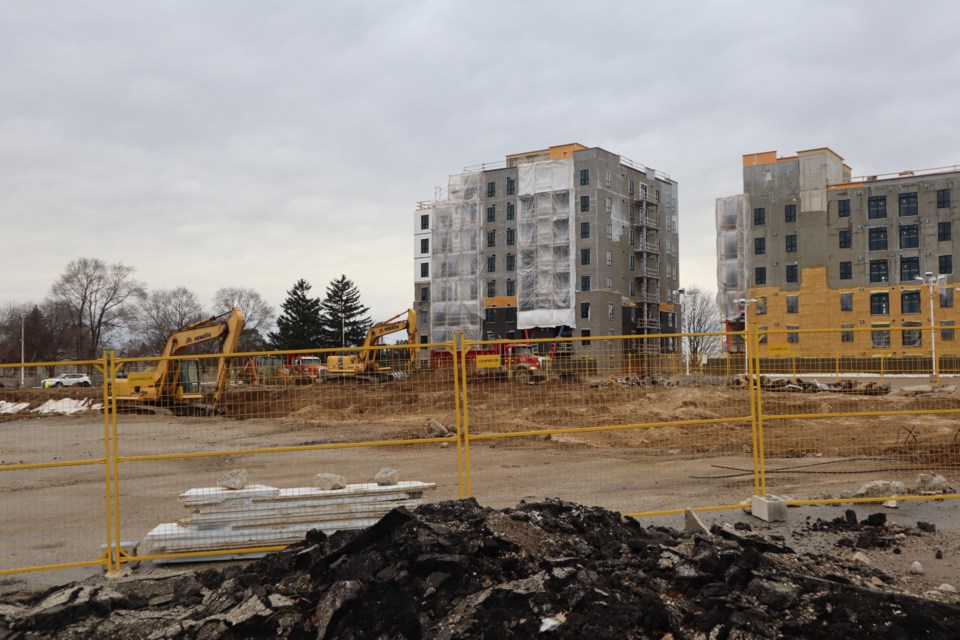The region hopes a new program that exempts affordable housing providers from paying property tax provides the incentive they need to keep existing units affordable and make more units available.
A motion to adopt the plan won unanimous approval from regional councillors today during a community and health services committee meeting.
Once ratified by regional council later this month, the plan will make building owners in the municipal housing program exempt from paying regional and education property taxes and could eventually mean lower tier municipalities like the City of Cambridge also agree to exempt affordable housing providers from paying the city's portion of property taxes.
Staff hope to create an application process this spring for the 2025 taxation year.
The plan should work to save the region's existing affordable housing units, some of which are approaching end of their operating agreements.
Staff said it should also encourage building owners to keep rents low in older buildings in order to qualify and encourage developers to include more affordable units in new builds.
Between 2001 and 2020, 21 private developers received grants in exchange for creating affordable units for a term of 20 to 25 years.
Together they pay about $570,000 in regional taxes annually.
Non-profits and cooperatives own 117 properties in the region and pay about $3.5 million in regional taxes.
Any property owner who wants to enter the tax exemption program would have to agree to provide affordable housing at a maximum of 80 per cent of the market rate for a minimum of 60 years.
Affordability is determined to be 30 per cent of tenant income.
The Municipal Property Assessment Corporation would be responsible for determining which units qualify in buildings with a mix of market rate and affordable units.
Other municipalities that have implemented property tax exemptions through municipal housing by-laws include Toronto, Ottawa, Hamilton, Chatham-Kent, and Wellington County.
A tax exemption program like the one the region is developing, is designed to work in tandem with existing regional, federal and provincial affordable housing programs.
Regional councillor Pam Wolf was in strong support of the motion.
"I think we need to use all the tools we have to increase and preserve our affordable housing," she said.
"We know the need is there and I commend staff and this council for doing everything they can and providing staff with every tool they can to increase our affordable housing supply."
Although the overall tax levy won't be impacted, it means taxes are applied over a fewer number of properties, resulting in a slightly higher tax rate across all taxable classes.
It's estimated the school boards could see a total reduction in property tax revenues of about $127,000.
If all current non-profit and cooperative housing providers in the region sign on to the program, that impact could balloon to about $489,000.
Cambridge Mayor Jan Liggett wanted to know the tax implications for homeowners in Cambridge with the amount of city tax revenue on units that qualify sitting around $850,000.
Taking into account the region and the education portion, that it amounts to about $2.25 million annually, she said.
The region's chief financial officer Craig Dyer said the impact is not on the tax levy but on the overall amount of assessment on which municipal taxes are levied.
He said it would be a "very minor impact in any given year."
Future assessment impacts will be dependent on how many eligible properties choose to participate in the program.
Dyer said the region will report back on uptake and its impact ahead of budget discussions.
One drawback of the program is that anyone living in a tax exempt unit is ineligible for refundable property tax and energy credits through the Ontario Trillium Benefit program.
The program is designed to help low-to-moderate income residents with benefits of between $420 and $800 per year.
The region says it will advocate to the province to amend eligibility for the OTB program.
Implementation of the tax exemption is expected to take about a year once the intake process begins.



.png;w=120;h=80;mode=crop)